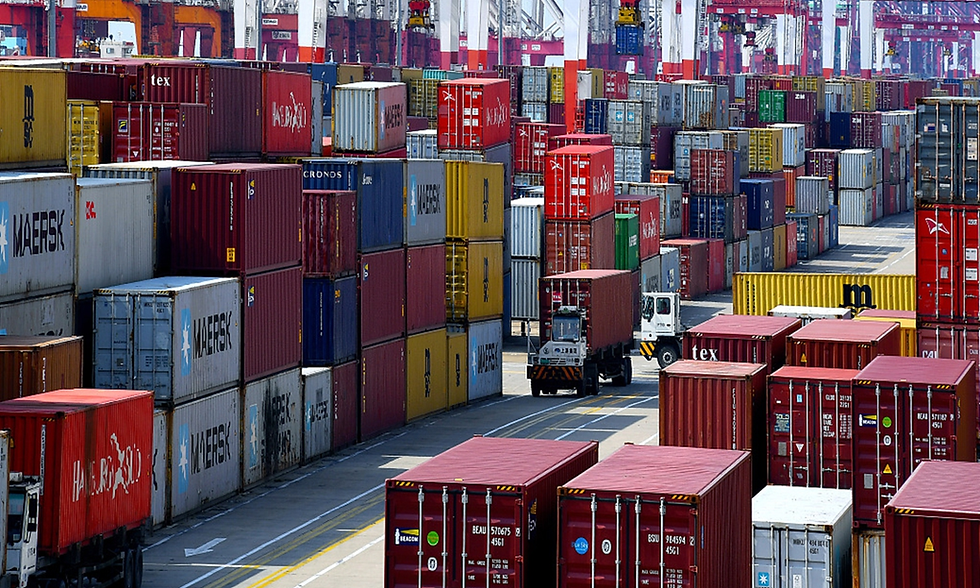Export Licensing Chaos at U.S. Commerce Department Threatens Tech Competitiveness
- Aug 1, 2025
- 3 min read
1 August 2025

Thousands of export license applications from American companies seeking to ship sensitive goods globally including advanced AI chips, semiconductor tools, radar and sonar systems remain stalled due to ongoing internal disruption within the Commerce Department’s Bureau of Industry and Security, according to industry insiders and government sources.
Under the leadership of Secretary Howard Lutnick and Undersecretary Jeffrey Kessler, the BIS has reportedly failed to deliver critical regulatory updates and has limited engagement with industry at a time when export enforcement and trade facilitation are expected to work in tandem. A mass exodus of experienced staff, resignations, and restructuring many occurring quietly via buyouts has eroded institutional memory and weakened the agency’s capacity to function effectively.
Exporters particularly cite shipments of Nvidia’s H20 AI chips to China as emblematic of broader dysfunction. Despite assurances in mid-July that licenses would be issued, none have been granted, placing billions of dollars of scheduled orders at risk. The delay undercuts U.S. companies’ ability to compete and risks triggering market share losses to global counterparts.
Industry voices warn the accumulated backlog is now the most prolonged in over thirty years. The license process, which averaged 38 days for applications in fiscal 2023, now faces unpredictable timelines. Exporters report zero correspondence on renewal, denial, or even referral status leaving supply chains in limbo.
Some cautious approvals continue for exports to allied countries. However exporters say even those selective approvals are sparse and come without the process clarity needed to build long-term planning. Meanwhile drafts of new export controls, including updates to AI chip restrictions and rules targeting foreign subsidiaries of banned entities, have sat unpublished for months.
This momentum collapse coincides with a period of aggressive U.S. trade policy shifts. The stagnating licensing environment complicates implementation of tariffs and evolving export controls alike, leaving businesses unable to respond. The impasse raises concerns about the U.S. losing technological edge just as global competition intensifies.
Commerce Department staff report Kessler is perceived internally as micromanaging and isolating the bureau. Staff have been instructed to limit interactions with industry representatives and mandated to log all meeting activity in spreadsheets a move seen as excessive oversight and detrimental to institutional transparency.
Trade experts emphasize the licensing system serves dual national security and commercial roles. Meghan Harris, a former National Security Council official, noted that delays and unpredictability weaken U.S. competitive positioning globally. When key sectors rely on timely export approvals, opaque policy and bureaucratic turbulence amount to strategic risk.
Consultancy firms report severe delays across multiple sectors from semiconductor manufacturing tools destined for China to radars and sonar systems heading to Latin America. One consultancy executive noted receiving mixed ven denial notices and silence from licensing officers.
Even as policymakers tout ambitious diplomacy and trade negotiations, the execution layer appears hobbled. Promised regulatory rollouts such as the rescindment of Biden-era limitations on AI chip shipments have not been implemented. Staff shortages remain acute, including unfilled export control officer roles in China and the recent retirement of enforcement leadership.
For U.S. companies broader than big names like Nvidia, the licensing freeze threatens revenue, expansion plans, and investor confidence. While some regulators stress a measured review process was intended, exporters counter that absence of guidance during operational paralysis is far from acceptable.
As global demand for advanced technology accelerates especially in AI, defense, and telecom U.S. delays could embolden competitors in Asia and Europe to fill voids. The licensing fallout also undermines industry strategy, where businesses depend on predictable oversight to maintain complex supply chains.
For now industry insiders call for urgent action: transparency, reinstatement of expert staff, and resumption of meaningful communication with business partners. Without reform, stagnation may fracture trust in an agency that straddles trade and security and that could ripple far beyond a backlog of license forms.



Comments